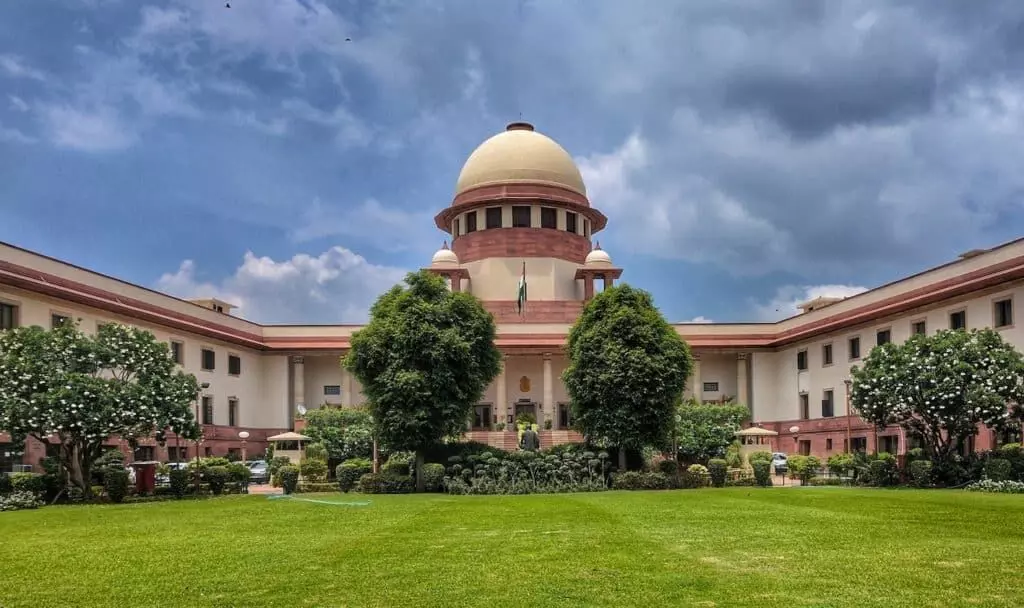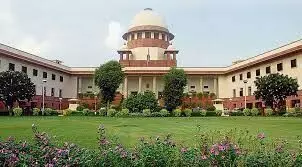
The reservation aims not economic uplift but empowerment
text_fieldsThe Modi administration, riding over majority votes on 8th January 2019, passed in the Lok Sabha a constitutional amendment bill that would ensure 10 per cent reservation in education, central services and public and private employment institutions for the economically disadvantaged upper castes. While the Congress, Left parties and most regional parties supported it, only a flimsy minority made up of the Muslim League and Asaduddin Owaisi's AIMIM voted against it. Groups like Janhit Abhiyan and All India Backward Classes Federation questioned the bill in the Supreme Court.
After the long spell of three years, the constitution bench of the apex court including Chief Justice U.U. Lalit, studying it in detail, finally handed out its verdict. Over a majority vote of three judges in favour of the bill and two including the chief justice himself against it, the 103rd Constitution Amendment has become valid. Henceforth, the economically disadvantaged of the upper castes can avail of 10 per cent reservation in educational institutions, jobs and professions. The judgment will not affect the Supreme Court's previous decision of reservation not to exceed 50 per cent.
The majority of the constitution bench has given validity to the government's decision that raised reservation to 60 per cent. The parties that had supported the bill in Parliament welcomed the verdict. In their view as well as that of the media that support them, the uncertainty over reservations has come to an end. However, it is relevant to debate whether the court judgment is a satisfactory solution to the problem. The spirit of the Constitution holds that India being secular democracy citizens of all caste and religious communities should get equal rights and opportunities, and no one should be denied on account of any discrimination based on diversity. That itself is the basis of legislation.
 Also Read:Reservation case: minority verdict of SC says excluding SCs, STs, OBCs from EWS quota violates right to equal opportunity
Also Read:Reservation case: minority verdict of SC says excluding SCs, STs, OBCs from EWS quota violates right to equal opportunity
However, crores of people in the country still remain denied equal rights due to historical and social reasons. The architect of the Constitution introduced reservations in education, jobs and occupations for the SC, ST and OBC sections to bring them into the mainstream where they would share equal rights and opportunities within a certain period of time. The reservation guaranteed by the Constitution is not in any sense economic; nor is it a cure for unemployment and poverty. Rather, its goal is empowerment and social justice. In other words, reservation is an interim arrangement to bring up the Dalits and Adivasis, who form an educationally, socially and economically disadvantaged large section, to rule and lead. Unfortunately, even after three-quarters of a century of independence, the goal remains far off.
 Also Read:Reservation for Economically Weaker Sections doesn't violate basic structure: SC
Also Read:Reservation for Economically Weaker Sections doesn't violate basic structure: SC
To a large extent, the forward communities that until now led and ruled the country are responsible for this. The government should at least now get to probe and study the exact situation of the reservation offered to communities to correct the flaws. The most pertinent questions raised by the dissenting judges are likely to continue controversial: What is the justification for considering only the forward castes for financial reservation? Why not the disadvantaged and limited income earners of lower castes? This discrimination obviously needs to be corrected.
This new ruling has cut even their chances of competing on merit from 50 per cent to 40 per cent. The Justice Rajinder Sachar Committee, which studied the socio-economic status of Muslim minorities in independent India and submitted its report in 2006, recommended reservation for the poorest and most marginalized sections of Muslims. Neither the UPA government nor the Modi government has implemented it to date. Most state governments continue to ignore this. It is yet to be seen if the latest Supreme Court verdict will bring relief to these unlucky ones who have not been considered forward or backwards. The only reminder is the problem deserves the attention of community leaders and social workers.






















